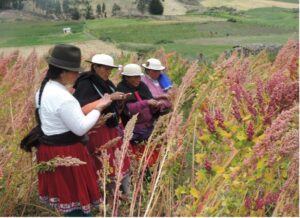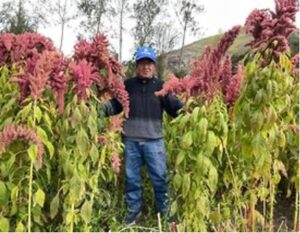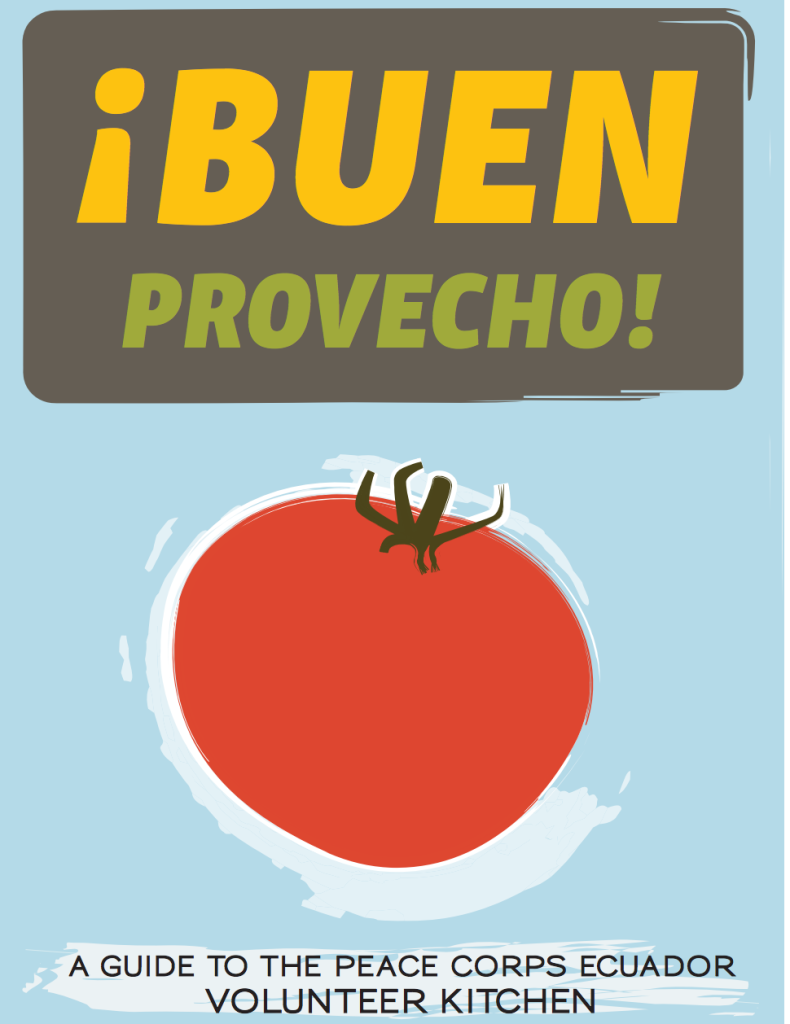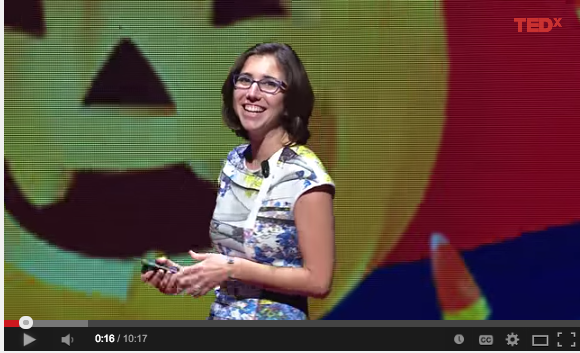Mushuk Yuyay hosts the IX World Quinua Congress
This is a guest post from Alan Adams, who served in Ecuador from 1967-1969

In the province of Cañar, in southern Ecuador, an association of farmers, La Asociación de Productores de Semillas y Alimentos Nutricionales Andinos Mushuk Yuyay was incorporated in 1994 as a non-profit. It has been serving the farming community of the area ever since, while growing slowly and steadily year by year. This association grew out of the struggle begun in the 1960s during the Ecuadorian agrarian reform. It grew out of the dreams and the vision of the campesino hacienda workers as they achieved their freedom.
It grew through the work of the farmers as they, bit by bit, improved the depleted soils and tried to make a living on the tiny plots of land. They educated themselves. They educated their children. They evaluated the conditions. They made difficult and risky decisions. The Association was named Mushuk Yuyay because that means New Thought. They looked at their reality with a new vision. First improving seed, then developing agroecological methods based on Indigenous knowledge mixed with scientific research. Despite lack of resources or outside assistance, the results were astounding.

These results were what convinced me to join their efforts when, after 50 years of absence, I received an invitation to finish what we had started in the Peace Corps in the 1960s. It will never be finished, but here we are, still going. With the spirit of service of the Friends of Ecuador, we will find more results. The task is, indeed, still towering. Not our task. That belongs to the people who are living it. We are here to help and encourage, to be in the middle of it.
To understand the struggle. And, every day, though I do this remotely, I feel like I’m still in the Peace Corps. First with improved seed, developed through traditional methods, then with homemade fertilizers, adapting to climate change, dealing with economic downturns, and the devastation of emigration, Mushuk Yuyay walked toward their goal.
After years of planning and negotiation, they were able to build a processing plant for their crops. They convinced BanEcuador to lend them money. They developed their own brand. Alli Mikuna means Good Food, and the products can be found throughout Ecuador. Heifer Project saw their work and has contributed machinery and conducted education programs in fertilizer production. Washington State University is conducting participatory research with Mushuk Yuyay in quinua and barley improvement. New varieties have been developed.
Probably most importantly for the economic stability of the region, Mushuk Yuyay is this year able to pay farmers cash for their crops at harvest. Farmers used to take whatever they could get, pay a coyote, and leave the country. Now farmers are supporting their families, buying seed and fertilizer, and planting again. Everybody complains about emigration. Mushuk Yuyay is doing something about it. Years ago, Ecuadorian universities had no interest in Indigenous farmers. Now university students are visiting and doing projects in the Cañari community. La Universidad del Azuay is helping to design the ecotourism facilities Mushuk Yuyay is building. Agricultural, business administration, anthropology, and even theater students have visited.
La Universidad del Azuay also facilitated the collaboration of the University of Milan, Italy to help Mushuk Yuyay develop pasta making utilizing quinua and amaranth in high protein products. The University of Milan sent a pasta making expert, a nutritionist, and machinery expert to advise in establishing the Mushuk Yuyay food lab.

This would not happen without increased production. Emigration has caused a serious labor shortage. This has resulted in much crop land being converted to pasture for cattle which is causing an ecological disaster. Mushuk Yuyay is helping remaining farmers pool their labor and resources to plant more quinua.
There are 13 community savings and loan groups that are operating throughout the province of Cañar, even one in Azuay. Mushuk Yuyay is preparing them for support of TCP Global which works with Rotary Clubs worldwide. These groups are planting quinua and other crops that support Alli Mikuna. Now they have markets. One group is composed of returned emigres who bought land at the lower elevation of the province to produce coffee and cacao to flavor quinua products.

As a result of this, quinua production and marketing has risen. Not sharply. One hectare, one bag, one dollar at a time. Not for export or profit, but for the health and well-being of the local population. They will not repeat the mistakes of other quinua producers who have ruined their land to squeeze one more dollar of sales out while the people suffer from malnutrition. Mushuk Yuyay’s motto is “Health is the best business.”
They swear that healthy eating got them through the pandemic. As mentioned above, others are noticing. Now, last year at the VIII World Quinua Congress in Potosí, Bolivia, Mushuk Yuyay was chosen to host the IX World Quinua Congress in March of 2025. This is tremendous honor, a wonderful opportunity, and gigantic challenge. Mushuk Yuyay is putting together a program celebrating the Andean origins, the worldwide present, and the wide open future of quinua. But, they are concentrating on the role of the farmer producer and the health of the consumer.
If you like to donate to Mushuk via Friends, you can visit Friends of Ecuador’s Donate page and PayPal link.
They are celebrating the cultural experience of Indigenous food production by bringing in producers from other Andean areas. They are hoping to include Indigenous peoples of other food traditions as well to show that there are viable alternatives to the globalized over processed products on the store shelves. This is going to be a truly unique World Quinua Congress.
From the sapi, the root, of the grains. I would like to invite Friends of Ecuador to be an integral part of this Congress. I would like to see Friends of Ecuador’s logo and name among the sponsors that will be celebrated during the Congress. Friends of Ecuador has done so much to help Mushuk Yuyay in the past.
If people want to participate by contributing individually or through Friends of Ecuador, they would be welcome to join. I am always ready to speak to anyone interested in Mushuk Yuyay of the Congress. Mushuk Yuyay is providing hope to the youth, job opportunities, economic stability for the region. It is a worthwhile investment for many reasons. Mushuk Yuyay is the good news in Ecuador.

If you like to donate to Mushuk via Friends, you can visit Friends of Ecuador’s Donate page and PayPal link.
Mushuk Yuyay hosts the IX World Quinua Congress Read More »









